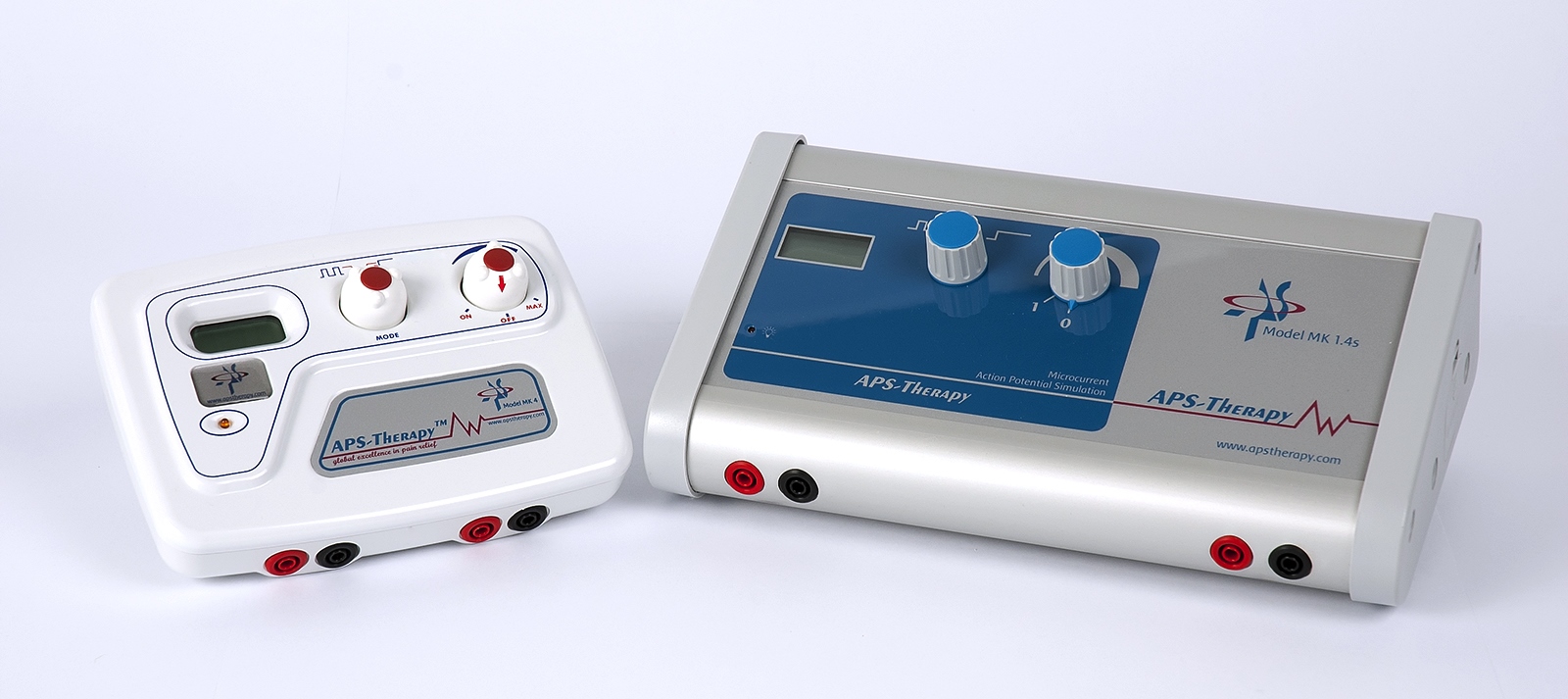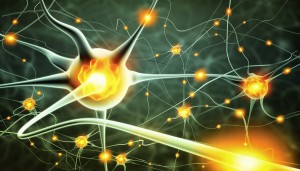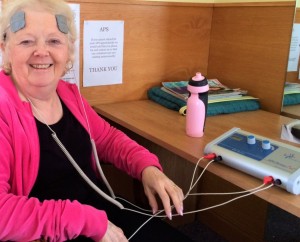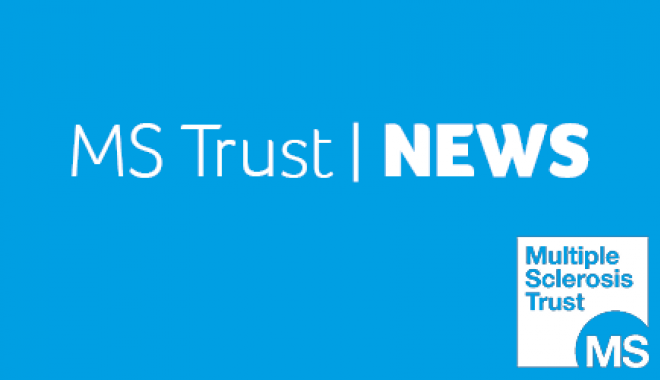Two MS Specialist Nurses from at MS Therapy Centre in Bedford, UK, have been trialling a drug-free microcurrent machine to treat pain in MS with very positive, and surprisingly wide ranging effects.
The treatment, Action Potential Simulation Therapy, or APS Therapy, uses a copy of the body’s own electrical signals – the ‘action potentials’ that travel along nerve fibres, to enhance communication between the cells, using an APS Therapy machine.
“The results we’re seeing, are, firstly, pain relief, in over 3/4s of the people with MS who have been treated over the past 3 years at the clinic. This is really significant, especially as the type of neuropathic, or nerve pain, that many people with MS experience, is very difficult to treat, and there are so many problems with side effects from the medication.
“I started off being most excited by the pain relief, and helping people to reduce and in some cases withdraw from medications they’re taking for pain, and of course I still am.
But recently, I’ve been most excited by the other improvements that some people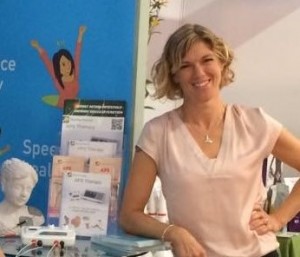 get – we had a lot of people reporting improvements in energy, with reduced fatigue, better sleep quality, feeling less stiffness and spasm, and often, really improved wellbeing, when they used the machines for pain, and so in the past year we’ve begun to try using the machines specifically for these problems, and had some lovely results,” says Miranda Olding.
get – we had a lot of people reporting improvements in energy, with reduced fatigue, better sleep quality, feeling less stiffness and spasm, and often, really improved wellbeing, when they used the machines for pain, and so in the past year we’ve begun to try using the machines specifically for these problems, and had some lovely results,” says Miranda Olding.
The nurses, Queen’s Nurse Emma Matthews from Northampton, and Miranda Olding from Bedford, cannot share the full results of their report on the first two years of treatment with APS Therapy until it’s been presented at the CMSC conference in Maryland, which they are travelling to in June. They also aim to present their 3rd year results at other clinical conferences during the year.
The mode of action of APS Therapy is to enhance cellular communication by sending replicated action potentials, which are up to 4 times stronger than the naturally occurring signals, through the body, between electrodes attached to the skin.
This assists the removal of waste and inflammatory products, which can reduce localised pain and swelling. The production of ATP ( adenosine triphosphate) is boosted by the therapy, which results for some people in increased energy levels, and also stimulates natural healing mechanisms. Other neuro-hormones that encourage healing and endogenous pain relief are also boosted, and some neuropathic pain seem to respond very well to the application of this correct, rather than disordered, nerve signal.
Results for people with MS can be very wide-ranging. This report came from Maggie, who has had MS for over 20 years, on her 4th week into the treatment. (She has retained all these benefits)
“‘Notes on progress of the fourth week”
• ˜Sleep improvements maintained although still wake frequently.
• ˜Pain during day virtually gone.
• ˜Pain at night much reduced – now only troubling between 6-8am.
• ˜Energy levels greatly improved. Much more stamina…
• ˜I can now easily get up from a chair even one without arms!
• ˜I can lower myself gently down instead of flinging myself down.
• ˜I can move around with ease and no longer have to plan everything I need to do. I can walk around indoors without a stick.
• ˜I can stand long enough to do some housework and get myself some lunch.
• ˜The ‘electric shock’ feelings I was experiencing in the head have been getting less in frequency.
• ˜The physio that I do in the group and in the pool have got better.
• ˜I can stay on a gym ball for the whole session and the physio has noticed as improvement in my posture and walking.
• ˜Mood- has elevated to new heights. I am delighted with the transformation – I feel I am getting me back.”
Not everyone who tries APS Therapy experiences these type of benefits, but the
team are having enough similar reports to merit offering APS Therapy as a trial treatment for people with MS who are struggling with fatigue as well as solely for pain, and to be excited by the potential applications of APS Therapy in people with MS.
Miranda Olding now splits her time between working as an MS Specialist Nurse, and working on introducing APS Therapy in the UK, both teaching and training and collecting data, and running a business where people can train, or rent or buy APS Therapy machines with one to one support over Skype, Facetime or Webex. You can find out more at www.painfreepotential.co.uk
